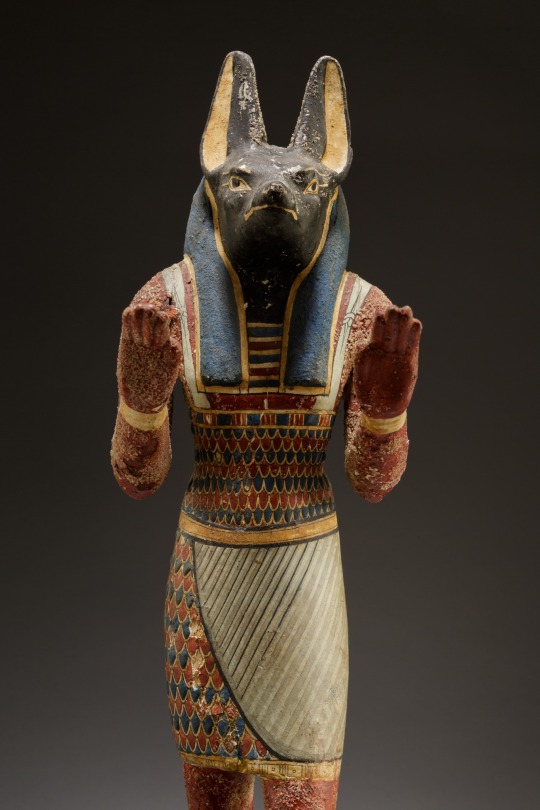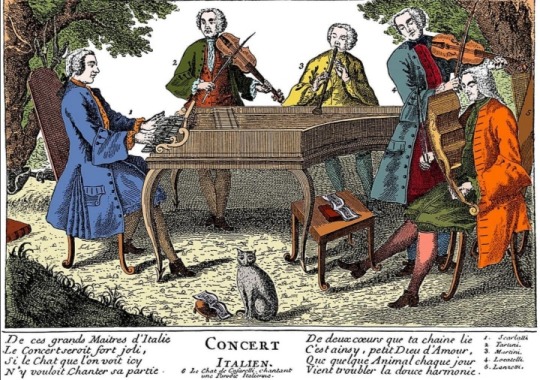This is my blog for everything connected to opera, but I'm just posting whatever I like most of the time. I do follow back with my main blog on Tumblr, which is My Contradiction Pile. Proud half of Fuck yeah, Philippe Jaroussky, dedicated to the celebration of PJ's awesomeness.
Don't wanna be here? Send us removal request.
Text
youtube
1er Divertissement"L'Encouragement" Op.34
2 notes
·
View notes
Text
youtube
Pictures at an Exhibition (Modest Mussorgsky) Kazuhito Yamashita [Guitar] 展覧会の絵(ムソルグスキー)山下和仁 [ギター]
2 notes
·
View notes
Text
youtube
Beth Taylor sings "Nacqui all'affanno" from Rossini's La Cenerentola My god, what a glorious voice!
4 notes
·
View notes
Text
Gail Gilmore sings Abigail (Nabucco): Ben io t'invenni - Anch'io dischiuso - Salgo già
Whenever the algorithm brings this one up again, I need to listen to it. I love her voice and how she fills the role so much. Bonus: The not-very-good choir always cracks me up too. They should be like "ma queen, take heart, go, claim what's yours!" but by the end, they blankly stare like Rubio when he sits on that couch which is oddly fitting too:

ABIGAILLE Ben io t'invenni, o fatal scritto! … in seno mal ti celava il rege, onde a me fosse di scorno! … Prole Abigail di schiavi! Ebben! … sia tale! Di Nabucco figlia, qual l'Assiro mi crede, che sono io qui? … peggior che schiava!Il trono affida il rege alla minor Fenena, mentr'ei fra l'armi a sterminar Giudea l'animo intende! … Me gli amori altrui invia dal campo a qui mirar! … Oh iniqui tutti, e più folli ancor! … d'Abigaille mal conoscete il core … Su tutti il mio furore piombar vedrete! … Ah sì! cada Fenena … il finto padre! … il regno! … Su me stessa rovina, o fatal sdegno!
(aria:) Anch'io dischiuso un giorno ebbi alla gioia il core; tutto parlarmi intorno udia di santo amore; piangeva all'altrui pianto, soffria degli altri al duol; ah! chi del perduto incanto mi torna un giorno sol?
SCENA II
Il Gran Sacerdote di Belo, Magi, Grandi del Regno, e detta
ABIGAILLE
Chi s'avanza?
GRAN SACERDOTE Orrenda scena s'è mostrata agl'occhi miei!
ABIGAILLE
Oh! che narri? …
GRAN SACERDOTE
Empia è Fenena,
manda liberi gli Ebrei; …
ABIGAILLE
Oh! …
GRAN SACERDOTE … questa turba maledetta chi frenare omai potrà? Il potere a te s'aspetta …
ABIGAILLE Come?
GRAN SACERDOTE
Il tutto è pronto già.
GRAN SACERDOTE, MAGI E GRANDE DEL REGNO Noi già sparso abbiamo fama come il re cadesse in guerra … te regina il popol chiama a salvar l'assiria terra. Solo un passo…è tua la sorte! Abbi cor! …
ABIGAILLE Son tuo! va'! … Oh fedel, di te men forte questa donna non sarà! …
Salgo già del trono aurato lo sgabello insanguinato; ben saprà la mia vendetta da quel seggio fulminar. Che lo scettro a me s'aspetta tutti i popoli vedranno, ah! regie figlie qui verranno l'umil schiava a supplicar.
GRAN SACERDOTE, MAGI E GRANDE DEL REGNO E di Belo la vendetta con la tua saprà tuonar.
ABIGAILLE Salgo già ecc.
youtube
0 notes
Text
Alcina is one of my absolute favourite operas, and this little aria is very dear to my heart. The role of Oronte was created for John Beard, barely 18 at the time, who started out as a boy soprano and had a long, extremely successful career ahead of him. Händel was the opposite of a hire-and-fire person - he loved his singers apparently and was very loyal to them. Personally, I think you can hear who the aria was written for if you pay attention. The tenor here vocally leaves many wishes open, but it doesn't matter - I have rewatched the aria so many times, and I always do it for Alice Coote who plays Ruggiero. Who can look at anything else if she is in the room? *edit: Tumblr "refuses to connect" to the unlisted vid, so here is the link.
5 notes
·
View notes
Text
What a singer, what a voice. Vale
youtube
I just realized that Ewa Podleś died this year in January. Very sad.
2 notes
·
View notes
Text
Philippe Jaroussky sings "À Chloris" by Reynaldo Hahn
youtube
** Subtitles FR/EN/DE, lyrics below ** Music by Reynaldo Hahn Words by Théophile de Viau Philippe Jaroussky, countertenor Jérome Ducros, piano
The video has been through a lot; its original resolution was 280px. I did what I could to restore this rare recording of a very young Jaroussky delivering the most divine "À Chloris", hitting the perfect spot between sacred sincerity and effortless ease the piece demands.

S'il est vrai, Chloris, que tu m'aimes, Mais j'entends, que tu m'aimes bien, Je ne crois point que les rois mêmes Aient un bonheur pareil au mien. Que la mort serait importune �� venir changer ma fortune Pour la félicité des cieux! Tout ce qu'on dit de l'ambroisie Ne touche point ma fantaisie Au prix des grâces de tes yeux.
---
If it is true, Chloris, that you love me, But I hear that you truly love me, I do not believe that even kings Were ever blessed like me. How unwelcome death would be If it came and exchanged my fate With the joy of heaven! All that is said of ambrosia Fails to kindle my fantasy, If it means to give up the grace of your gaze.
---
Ist es wahr, Chloris, du liebst mich, und ich hör, du liebst mich sehr, ist des Königs Glück, das weiß ich, nur ein Bach, mein Glück ein Meer. Mit dem Tod mag ich nicht handeln, würd mein Glück er auch verwandeln in des Himmels Seligkeit. Was sie von Ambrosia schwärmen, kann das Herz mir nicht erwärmen, macht dein Auge Sanftmut weit.
11 notes
·
View notes
Text
Deh, per questo istante solo ...
youtube
Tanto affanno soffre un core, ne si more di dolor!
Deh, per questo istante solo ti ricorda il primo amor, che morir mi fa di duolo il tuo sdegno, il tuo rigor.
Di pietade indegno, e vero. sol spirar io deggio orror. Pur saresti men severo se vedessi questo cor.
Disperato vado a morte, ma il morir non mi spaventa. ll pensiero mi tormenta che fui teco un traditor!
(Tanto affanno soffre un core, ne si more di dolor!)
Ah, for just this moment Remember the first affections, that make me die of grief your anger, your severity.
Unworthy of pity, it is true. I should only inspire horror. Yet you would be less severe if you could see this heart.
Desperate I go to death but death does not frighten me. The thought torments me is that I betrayed you!
(So much a heart can suffer, yet does not die of grief!)
Translation by Theresa M. Patten
1 note
·
View note
Text
The Sorceress - Kiri Te Kanawa
Voilà, probably one of the weirdly campest videos ever made: Kiri Te Kanawa's The Sorceress, (filmed in 1993) with English and Italian subs, so even if you are unfamiliar with opera - you have no excuse!
youtube
Tiptoeing the fine line between kitsch and camp, Kiri's The Sorceress has been a long favourite of mine. It's not only a video; it's its own mini-genre. Using the very Baroque tradition of the pasticcio (a patchwork piece to enrich an existing piece or following a known plot), The Sorceress is informed by a time that was celebrating the novelties of MTV video storytelling and was still obsessed with John Malkovich's Liaisons Dangereuses a couple of years prior. It's a throwback to the 90s in so many awesome ways. There are many versions of The Sorceress YouTube; I cleaned up one video a little, made translations and added captions in English and Italian so everyone can understand what Alcina is so upset about.
Kiri Te Kanawa Ensemble: The Academy of Ancient Music Conductor: Christopher Hogwood Choreography: Baroque Opera Atelier Toronto Mise-en-scène: Barbara Willis Sweete Ruggiero: Andrew Kelley Bradamante: Jeanette Zingg Alcina's Servant: Wilbert Hanssen Music by Georg Frideric Händel
I needed a short mental break, so I wasted a day (and a couple of bucks). The original plan was only to add subtitles in English and Italian, but I ended up scrubbing the video a little, upscaling and cleaning it with AI. Don't expect too much; the best version flying around is 444x360 pixels or something (black frame around it included) - VHS, I believe filmed from a screen too.
tl; dr: I did what I could!
#kiri#kiri te kanawa#The Academy of Ancient Music#Christopher Hogwood#georg friedrich handel#george frideric handel#opera#baroque#costumes#video history#classical music#Alcina#Ruggiero#Bradamante#Youtube
28 notes
·
View notes
Text
Daniel Behle sings "Pensa che In campo armato" from Antonio Tozzi's "Rinaldo"
The motive is a recurring one and was a staple in the 18th century. Rinaldo + Armida, Ruggiero + Alcina … Sometimes grudgingly, sometimes tragically, the hero has to renounce his love or at least postpone his desires to follow the call of duty. Tozzi writes an aria for the voice of reason that in its virtuosity deserves a hero. Tozzi is probably not one of the "Greats" and a lot of his music is craftsmanship. However, there are more than just a few passages in this particular piece that lift it well above and beyond. The coloraturas are interesting and "galant", and the little chromatic figures that kindly urge the hero on show that it's important for Tozzi to establish that the reasonable one (who may be called Ubaldo) doesn't (only) strongarm Rinaldo into making the right decision; he wants to convince him.
Oh, and obviously, Daniel Behle is excellent. Libretto and translation below the cut
Bayreuth, Markgräfliches Opernhaus 2023 Aufnahme: BR Antonio Tozzi, Rinaldo (1775) Translation below
Pensa, che in campo armato il tuo valor ti chiama. Del tuo valor la fama combatterà con te.
Scordati il volto amato, fuggi quel dolce incanto. Maggiore d'ogni vanto è il trionfar di te. * Consider, that onto the battlefield Your valor summons you. The renown of your valour Will fight beside you.
Forget the beloved face, Flee that sweet enchantment. Greater than any vain glory, Is your triumph. * Wisse, Dich ruft die Ehre, Dich ruft die Pflicht zum Streite. Dort wird Dir Ruhm zur Seite, der Sieg zum Lohn Dir seyn.
Flieh aus der Wollust Armen! Fort! lass sie ohn' Erbarmen, Dich selbst als Held besiegen, muss höchster Ruhm Dir seyn.
*Artwork: Tiepolo, Rinaldo & Armida
2 notes
·
View notes
Text
Benjamin Britten’s opera for television: Owen Wingrave

The Wingrave family prides itself on being a family of soldiers. When Owen Wingrave decides that he will refuse to fight in the military, they don't take his decision well. Both he as well as his fiancé Kate lost their respective fathers in battle; while Owen sees this death as pointless, Kate embraces the apotheosis offered by society, that they died for a greater good, for honour, for King and country. Owen's decision challenges her own narrative. She calls Owen a coward and puts him up to a test of courage: in the attic of the Wingrave mansion, generations ago, a boy has died. Since then, the room is said to be haunted. If you're in a hurry, I recommend listening to just the two minutes starting at 55 min that blend Act I into Act II - a beautiful cantilene with an edge, and a disturbing children's choir, recounting the story of young Wingrave who refused to fight. [x]
Kent Nagano - conductor Margaret Williams - director
Gerald Finley - Owen Wingrave (baritone) Peter Savidge - Spencer Coyle (bass-baritone) Hilton Marlton - Lechmere (tenor) Josephine Barstow - Miss Wingrave (dramatic soprano) Anne Dawson - Mrs Coyle (soprano) Charlotte Hellekant - Kate Julian (mezzo-soprano) Martyn Hill - Sir Philip Wingrave (tenor) Elizabeth Gale - Mrs Julian (soprano)
The Deutsches Symphonie Orchester Berlin
Libretto: Myfanwy Piper, after Henry James Directed by Margaret Williams, 1991.
0 notes
Text



Egyptian
Statuette of Anubis
Ptolemaic Period
332-30 B.C.
67 notes
·
View notes
Text
Cecilia Bartoli sings Mozart's Concert Aria "Ah, lo previdi … Ah, t'invola … Deh non varcar" (KV 272)
youtube
I can't even tell I love Kiri or Bartoli more - I never get tired of this piece and it absolutely kills me every time.
Ah, don't leave, beloved shadow, I want to join you. On the final step, While the pain kills me, In the meantime, tarry, tarry awhile! Cavatina Ah, do not cross the river, Soul of my heart. To the other shore of the river Lete, Shade, your companion, I too Want to come, come with you.
"Ah, lo previdi … Ah, t'invola … Deh non varcar" Mozart, KV 272 Libretto: Vittorio Amedeo Cigna-Santi, "Andromeda" (also set by Paisiello)
Andromeda Recitativo Ah, lo previdi! Povero Prence, con quel ferro istesso che me salvò, ti lacerasti il petto.
(ad Eristeo) Ma tu sì fiero scempio perchè non impedir? Come, o crudele, d'un misero a pietà non ti movesti? Qual tigre, qual tigre ti nodrì? Dove, dove, dove nascesti?
Aria Ah, t'invola agl'occhi miei, alma vile, ingrato cor! La cagione, oh Dio, tu sei del mio barbaro, barbaro dolor. Va, crudele! Va, spietato! Va, tra le fiere ad abitar.
(Eristeo parte) Recitativo Misera! Misera! Invan m'adiro, e nel suo sangue intanto nuota già l'idol mio. Con quell'acciaro, ah Perseo, che facesti? Mi salvasti poc'anzi,or m'uccidesti.
Col sangue, ahi, la bell'alma, ecco, già uscì dallo squarciato seno. Me infelice! Si oscura il giorno agli occhi miei, e nel barbaro affanno il cor vien meno.
Ah, non partir, ombra diletta, io voglio unirmi a te. Sul grado estremo, intanto che m'uccide il dolor, intanto fermati, fermati alquanto!
Cavatina Deh, non varcar quell'onda, anima del cor mio. Di Lete all'altra sponda, ombra, compagna anch'io voglio venir, venir con te.
2 notes
·
View notes
Text
"Gelido in ogni vena" Giovanni Battista Ferrandini, "Siroe" Libretto: Antonio Maria Lucchini
Countertenor + piano accompagniment: Philippe Jaroussky Live on France Inter Nov 2023 Cosroes' aria (Act III, scene V)
Gelido in ogni vena Scorrer mi sento il sangue, L'ombra del figlio esangue M'ingombra di terror.
E per maggior mia pena Vedo che fui crudele A un'anima innocente, Al core del mio cor.
** I feel my blood congealing run Thro' ev'ry vein, in ev'ry part, And the pale ghost of my dear son, Strikes dread and terror to my heart.
And still to add to greater woe, The loyal innocent I've slain, Of cruelty at length I know, I, on myself, have fix'd the stain.
"Gelido in ogni vena" is an aria from a libretto by Antonio Maria Lucchini. It appears in two distinct operas: "Siroe" and "Farnace". "Gelido in ogni vena" was set to music by almost every composer of the Baroque era and beyond. The approaches are very different and interesting to hear. They range from Vinci's odd decision to make it more pleasing than gripping to Vivaldi's soul-crushing benchmark of what a baroque aria can be.
The fellow Venetian Giovanni Battista Ferrandini (*1710) has a yet different approach. It's not quite clear when his version was composed, only that it happened before 1758. The dread that befalls Cosroe when he imagines seeing his deceased son whom he (justly) feels he has wronged that makes his blood run cold with fear and guilt Ferrandini illustrates with fragile diminished jumps and subtle harmonic shifts and chromatics as Cosroe's world is coming apart at the seams, shifting and shaking while he tries to somehow smoothen the cracks and live on. More personal and intimate than Vivaldi's, Ferrandini's interpretation is sublime by its own merit.
The full da capo aria can be found on Philippe Jaroussky's album "Forgotten Arias" [x]. On the radio, live, he gives us a two-minute slice.
The full radio podcast is still available here: [x]
Translation Source: Siroe, re di Persia. Drama per musica 1736, British Library [x]
#Antonio Maria Lucchini#Siroe#Farnace#Lucchini#philippe jaroussky#countertenor#perfect people#opera#baroque#SoundCloud
12 notes
·
View notes


